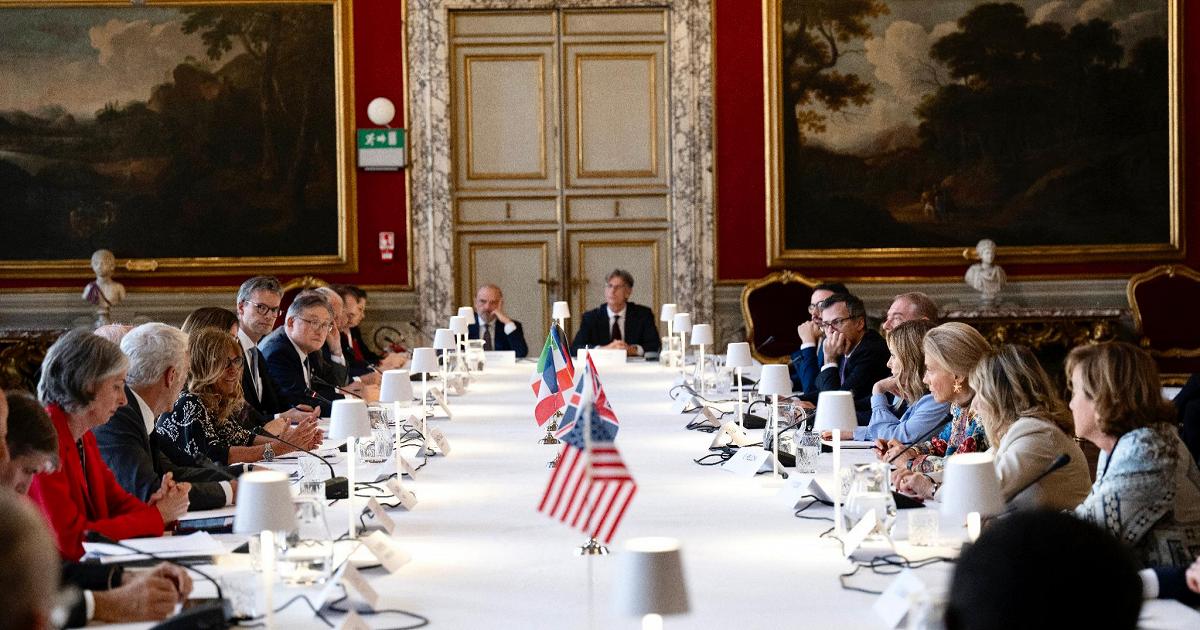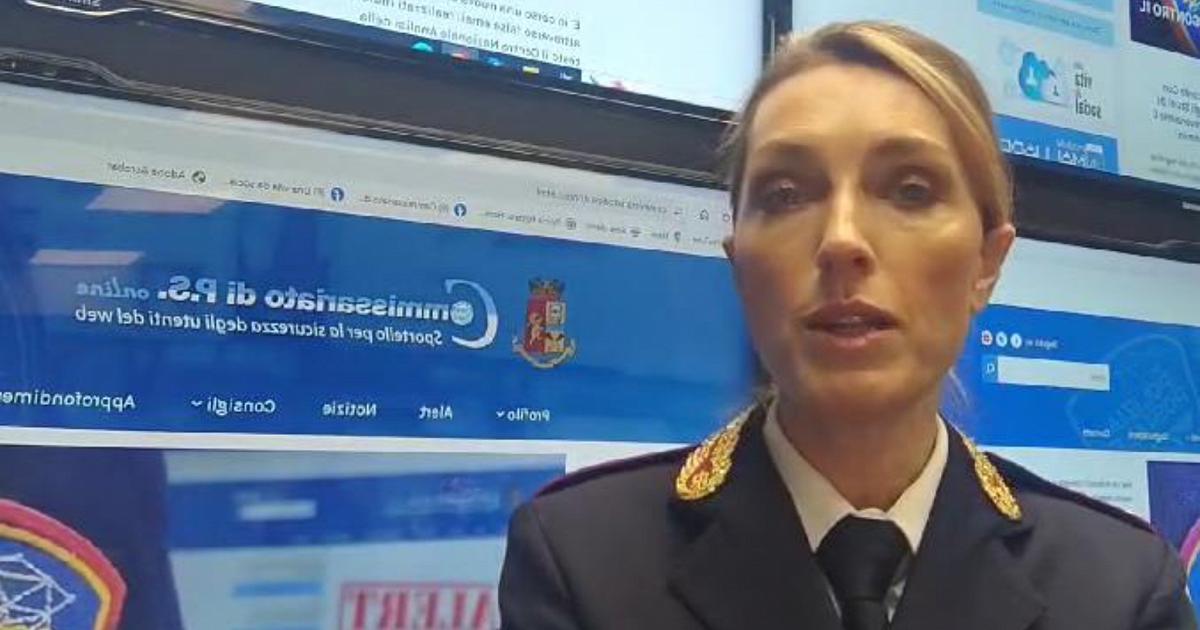In recent days, the Civil 7 Summit, the Civil 7 dialogue space, took place in Rome international civil society with the G7. On the agenda for discussion are: were the themes of environment, social justice and peace. We talk about it with Valeria Emmi and Riccardo Moro, respectively Sherpa and President of C7.
The first question concerns your roles. Who are the Sherpa and the President of the C7?
Emmi: The Sherpa is the person who facilitates the internal dialogue process and brings together and synthesizes the policy proposals from the seven international thematic working groups that work during the year, to present them to the G7 presidency. Moro: The president is the one who, in one way or another, guarantees the process: inclusion and international democratic participation, which also happens now with great ease. The “Civil 7” process, as well as the Civil 20 process which dialogues each year with the G20, are opportunities for dialogue largely in which international civil society participates. This year we had over 700 organizations from virtually all over the world, with significant participation from the Global South, and certainly not just from the G7 countries.
What topics are on your agenda?
Emmi: We summarized our demands in the slogan “Just Justice”. “Only” justice, economic, environmental and social justice. These are obviously difficult and complex questions and to say “just justice” does not mean not seeing the complexity, but to affirm that there is a clear ethical compass to guide oneself in the definition of policies, namely to direct them towards human rights, be guaranteed to all, rather than partisan interests. We are living in an era of “polycrisis,” that is, multiple interrelated crises, from climate to food security, from finance to threats to peace. To develop our recommendations we created 7 working groups: Finance, Health, Climate and Energy, Food, Human Mobility, Humanitarian Assistance, Peace. All with a transversal look at attention to the gender dimension.
The environment and attention to climate are themes that can appear almost inflated, the results of which still seem largely insufficient. What are the your offers ?
Emmi: The recommendations on this issue build on the commitments of the Paris Climate Agreement, encouraging us to do more and faster. These include eliminating fossil fuel subsidies by 2025 and completely switching to renewable energy by 2035; maintain the commitment, still unfulfilled, to finance low and middle income countries with 100 million per year for the implementation of mitigation and adaptation policies; support for the definition of new “quantified” collective objectives at COP 29 next December, to update international objectives beyond 2025.
What about social justice?
Moro: The subject is very broad and, as has been said about the “polycrisis”, it requires a global attention that focuses on the complex interactions between sectors. There is a strong emphasis on issues of “food justice”, which brings together food security, denied to a scandalously high number of people, and the sustainability of food systems, with the requirement to promote agroecology. The need to guarantee universal coverage of health services is reiterated. Even in this case, access to health, which in our country is a constitutional commitment, is far from being a reality for everyone. Finally, the most important dimension for working on social justice is probably the financial dimension. We are once again faced, almost 25 years after the Jubilee, with an increasingly serious debt problem in low- and middle-income countries, the cost of which is reducing governments' fiscal space. We need a strengthening of international tax instruments, which have great potential and for which there is ample room for action. Finally, coherence is needed in trade agreements, which are often contradictory with the commitments and objectives of the 2030 Agenda.
Finally peace. At the time of the war in Ukraine and Gaza, this seems to be the case inaccessible. What could be concrete objectives to put an end to this? destructive logic of war?
Emmi: This is perhaps the most difficult question. At the C7 Summit, we brought together many organizations that work tirelessly for dialogue and peace. In particular, a session was devoted to the theme of the war in the Middle East, in conjunction with civil society activists from Israel and Palestine who were demanding the same things: an immediate ceasefire, clarity on the damage caused and the demand that civilian organizations in society, which are the expression of the population, can participate significantly in peace dialogues and in defining the conditions and demands to be respected by the different parties. Furthermore, the demand for peace is part of a series of attentions aimed at strengthening international norms in matters of disarmament, in particular nuclear disarmament, and at international dialogue tables, as well as the reaffirmation of importance of international humanitarian law, often mentioned. violated today, a Gaza like in Ukraine, affecting not only civilians, but even preventing the humanitarian action of those who provide assistance and relief.
Government representatives and institutions also participated in your Summit international public religious organizations, such as Cardinal Zuppi. Have you found a listening ear?
Emmi: The summit brought together several representatives of international institutions, such as the World Bank, the IMF, the African Development Bank, the OECD, etc. At the opening we had Ambassador Belloni, Sherpa G7 of the Italian government and at the closing the Director General of the FAO. With them officials from the Italian government and other G7 countries. Foreign Minister Tajani also sent a message. For now, we are satisfied with the quality of the dialogue, although it will obviously be in the later stages of the G7 and in particular at the G7 summit in mid-June that we will see to what extent our attention will be taken into account .
One last word. We know that even on the part of civil society, in recent years, there were some errors. What is your opinion on this?
Moro: If we refer to the cases of corruption that occurred last year, I frankly believe that we can speak of isolated cases. No environment is free of problems and vulnerabilities, but it is necessary to clearly distinguish those who cheat from those who work for the common good. From the privileged perspective offered by the international presidency of the C7, I frankly believe that civil society organizations make a notable contribution to designing the future and serving peace. The institutional presence at the C7 Summit testifies and demonstrates the quality of this contribution, the merit of which goes not to those who coordinate it, but to the thousands of organizations who work in the field, develop analyses, formulate proposals and dialogue. Often paying in person, as has happened to many aid workers or indigenous movement activists. If we look in perspective, today, on environmental and social issues, and even on tax issues, governments are using the language that we started proposing years ago, and which was unknown then. This is an effective cultural change, but it is not enough. The violation of rights requires urgent action, to which politics is too insensitive and too slow.

